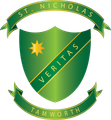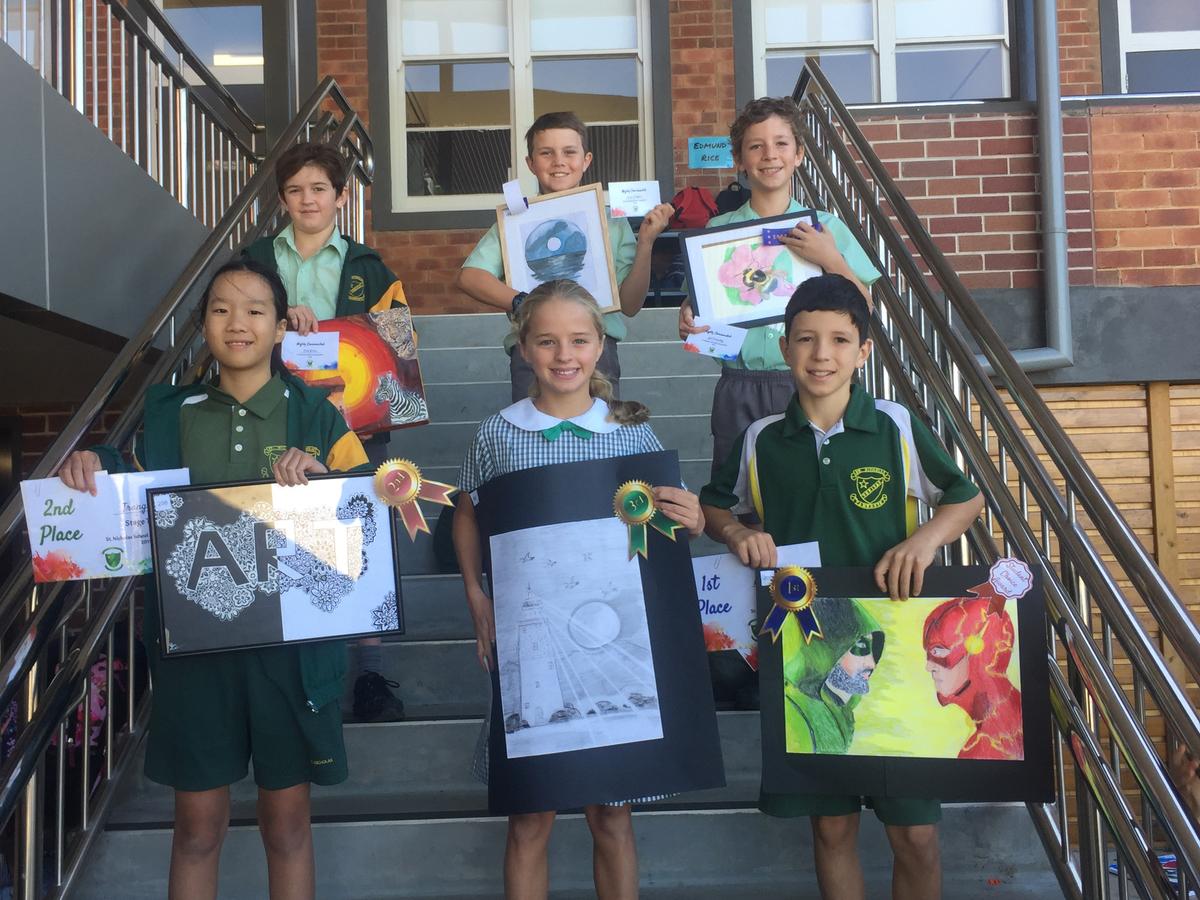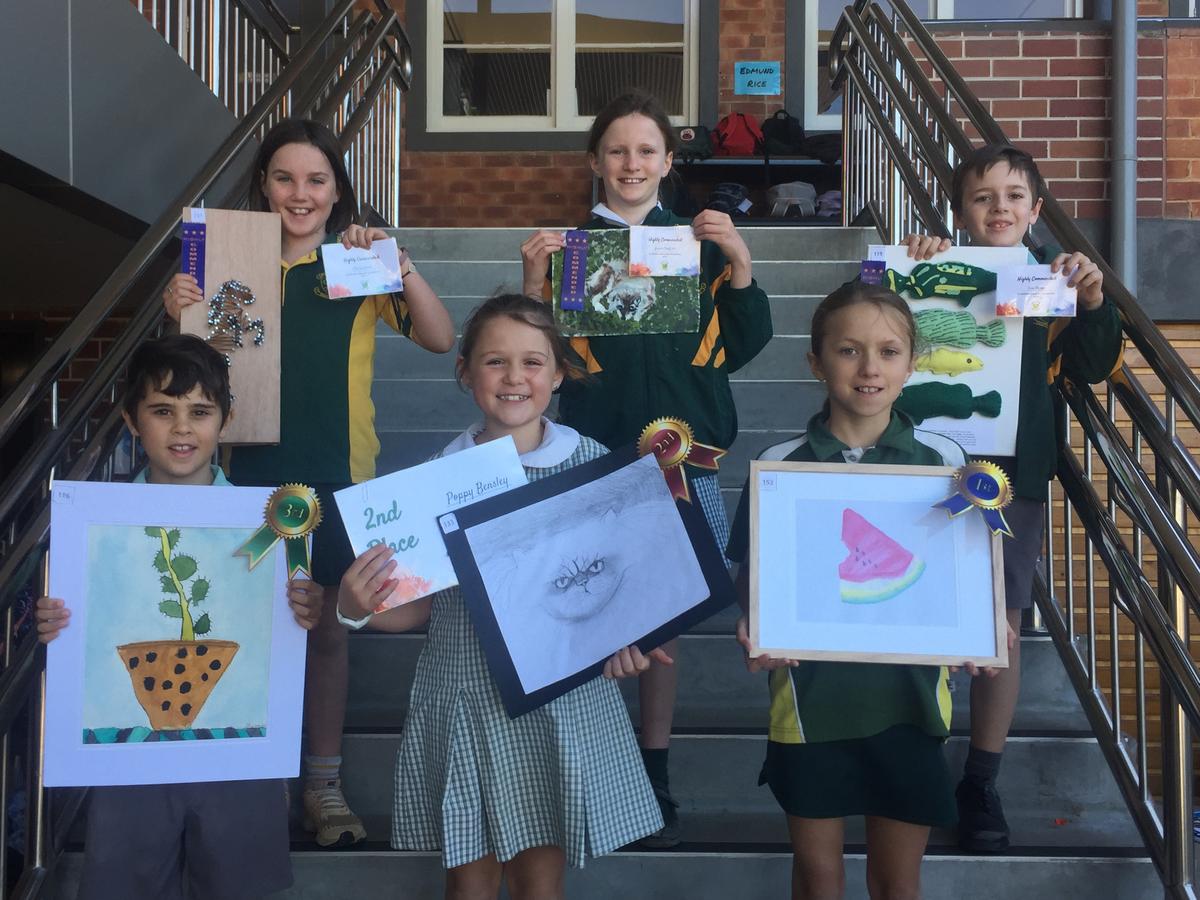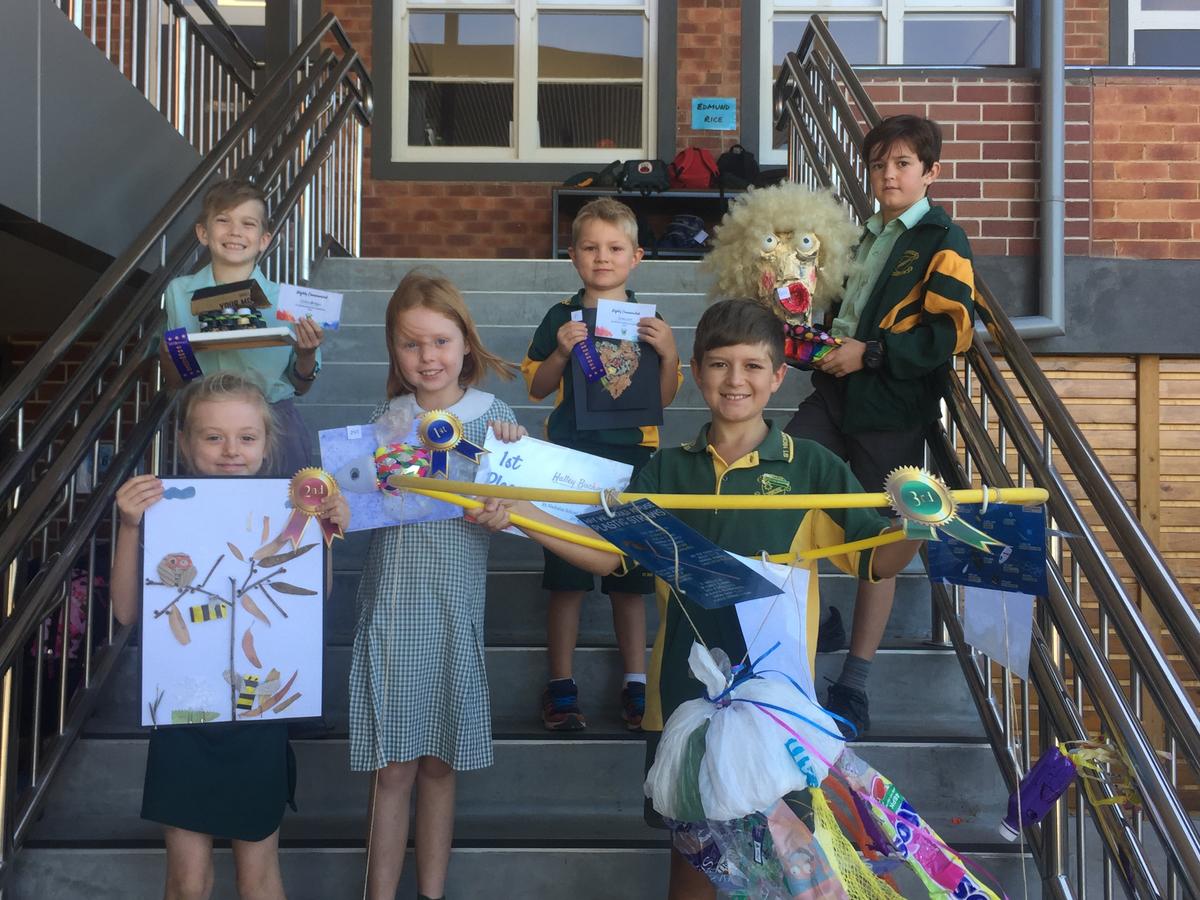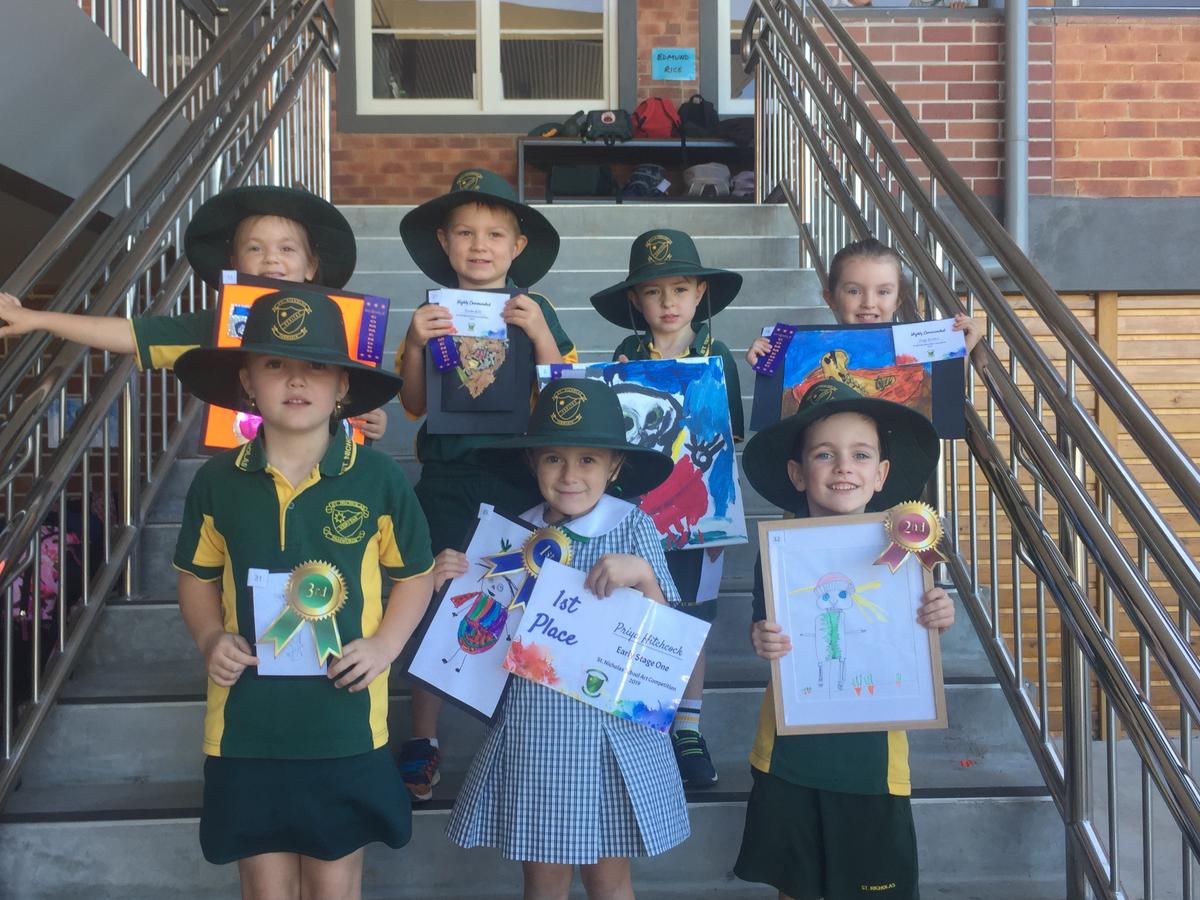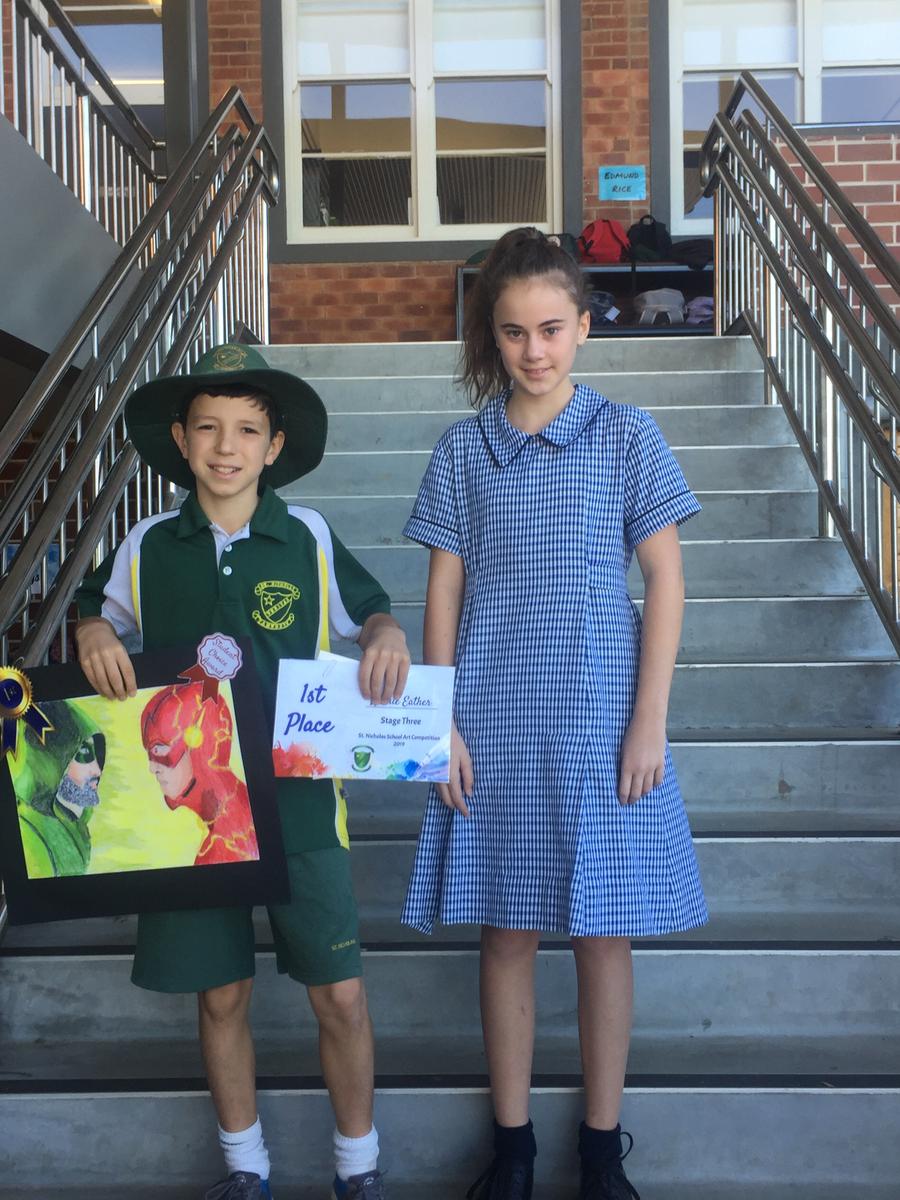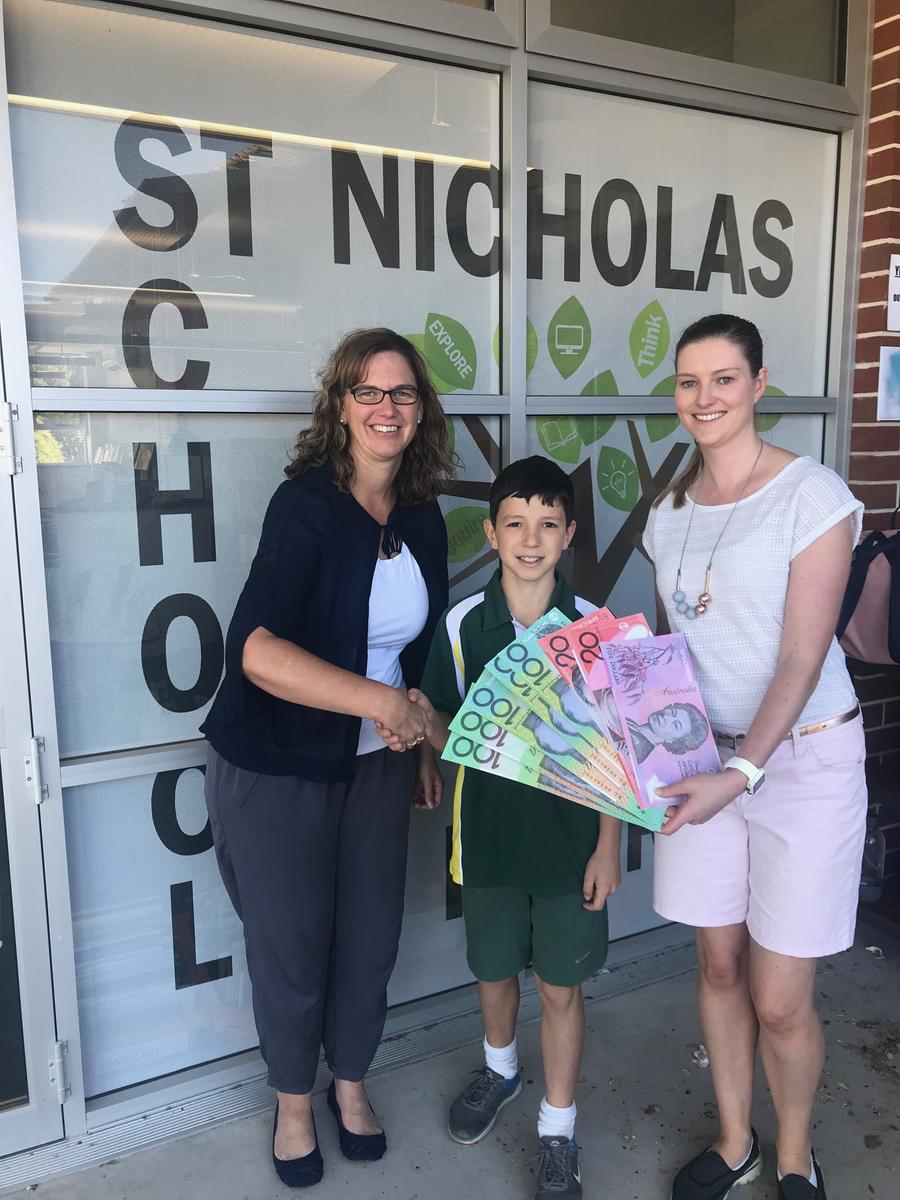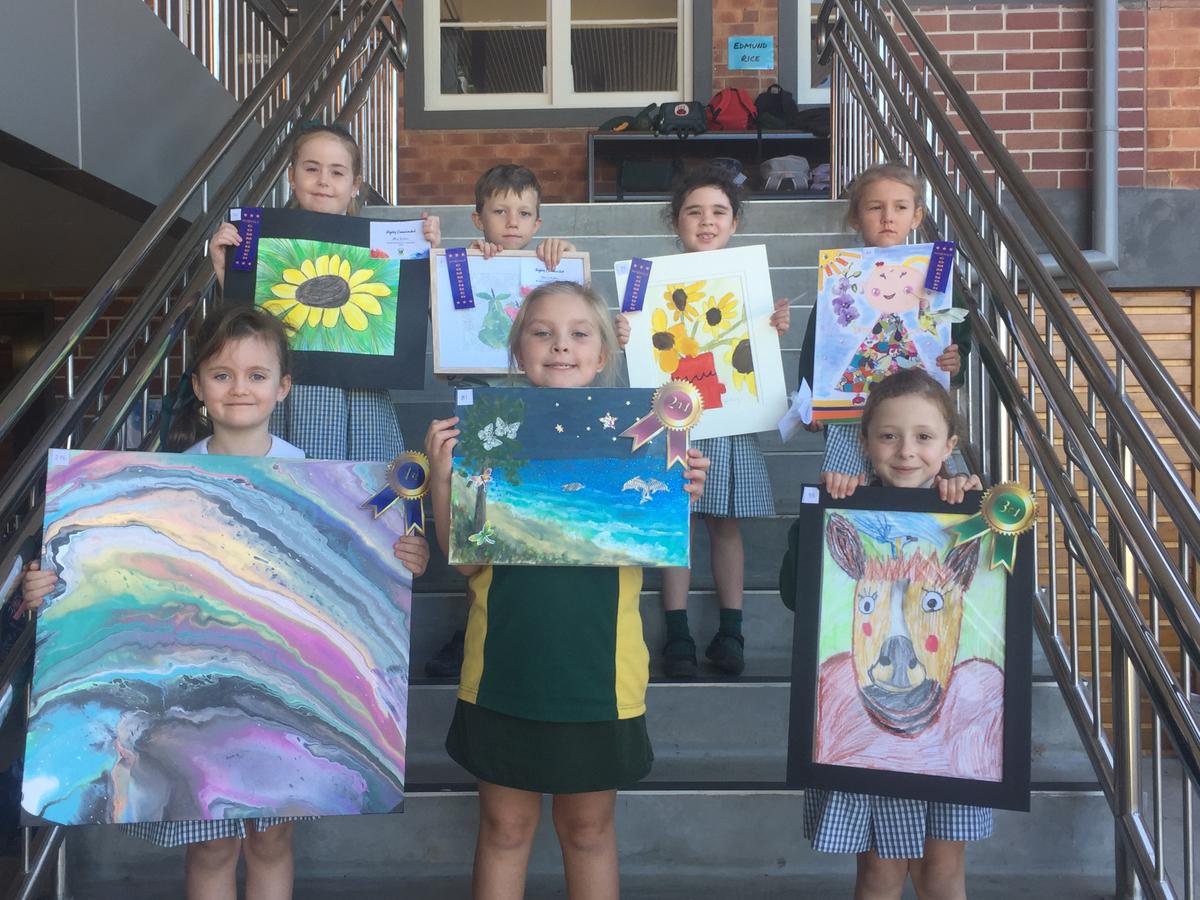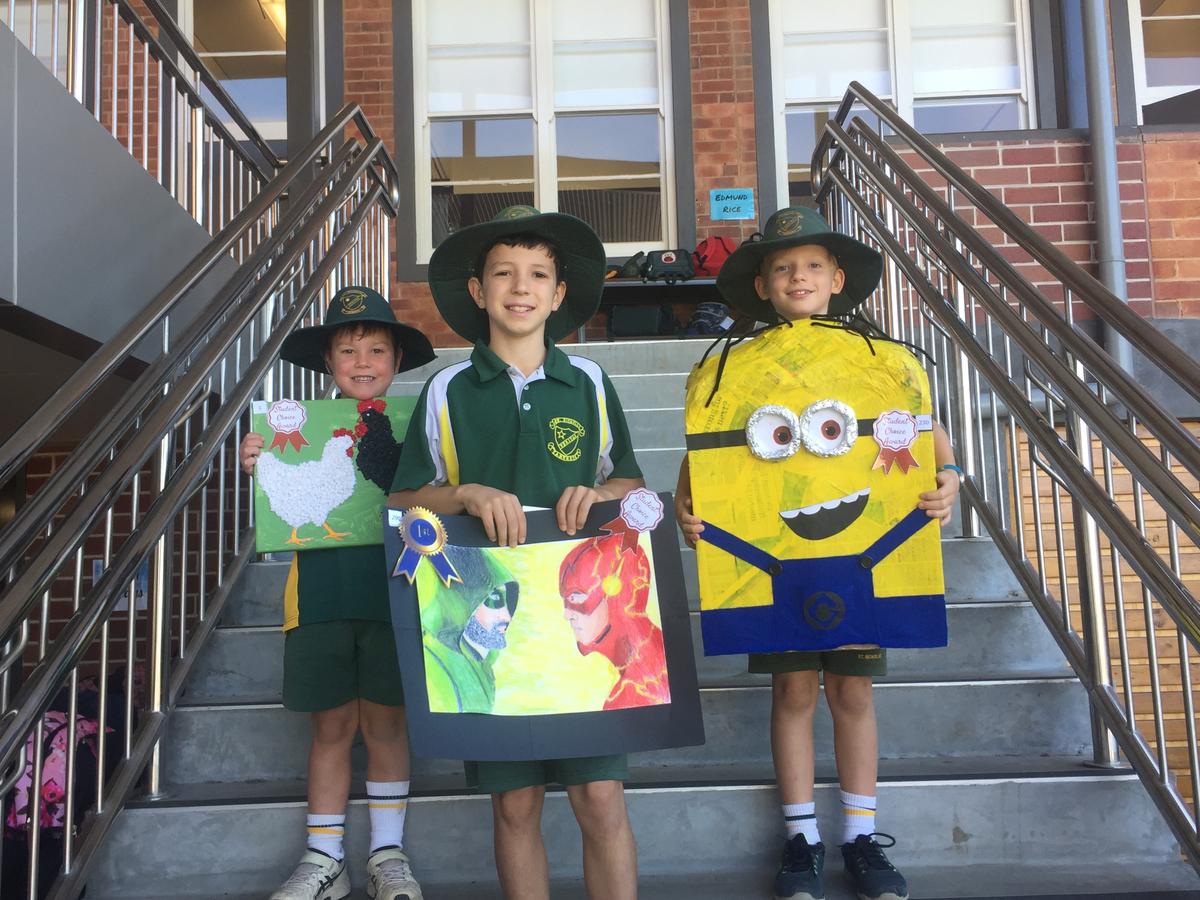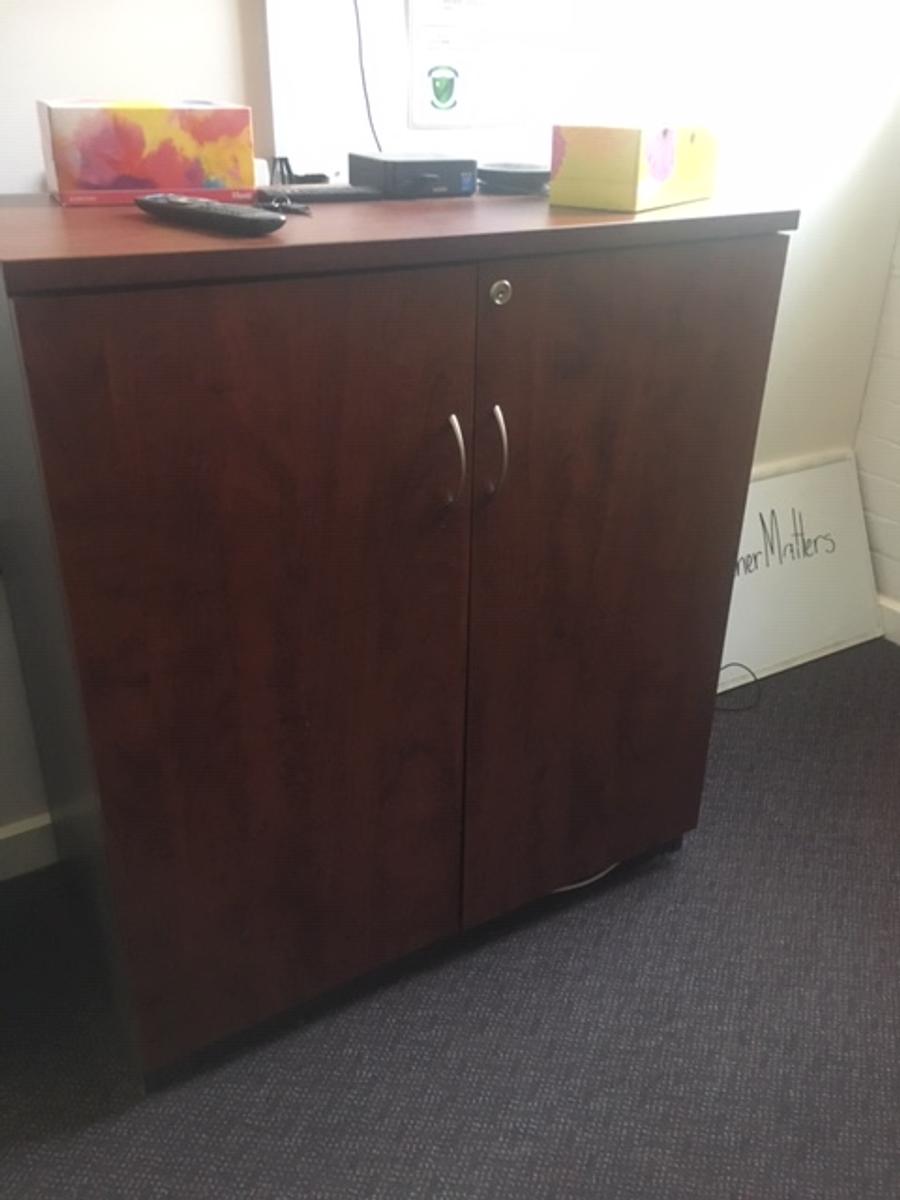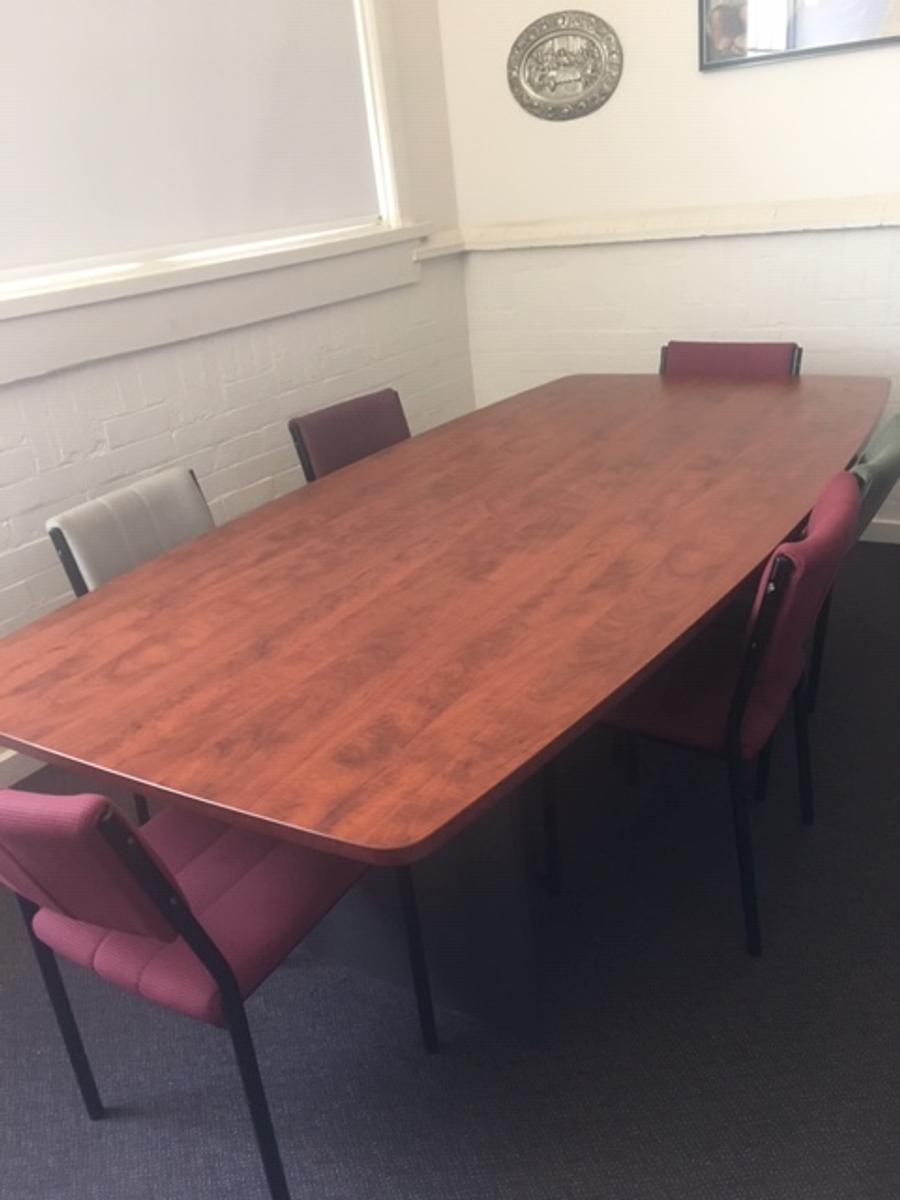GENERAL NEWS
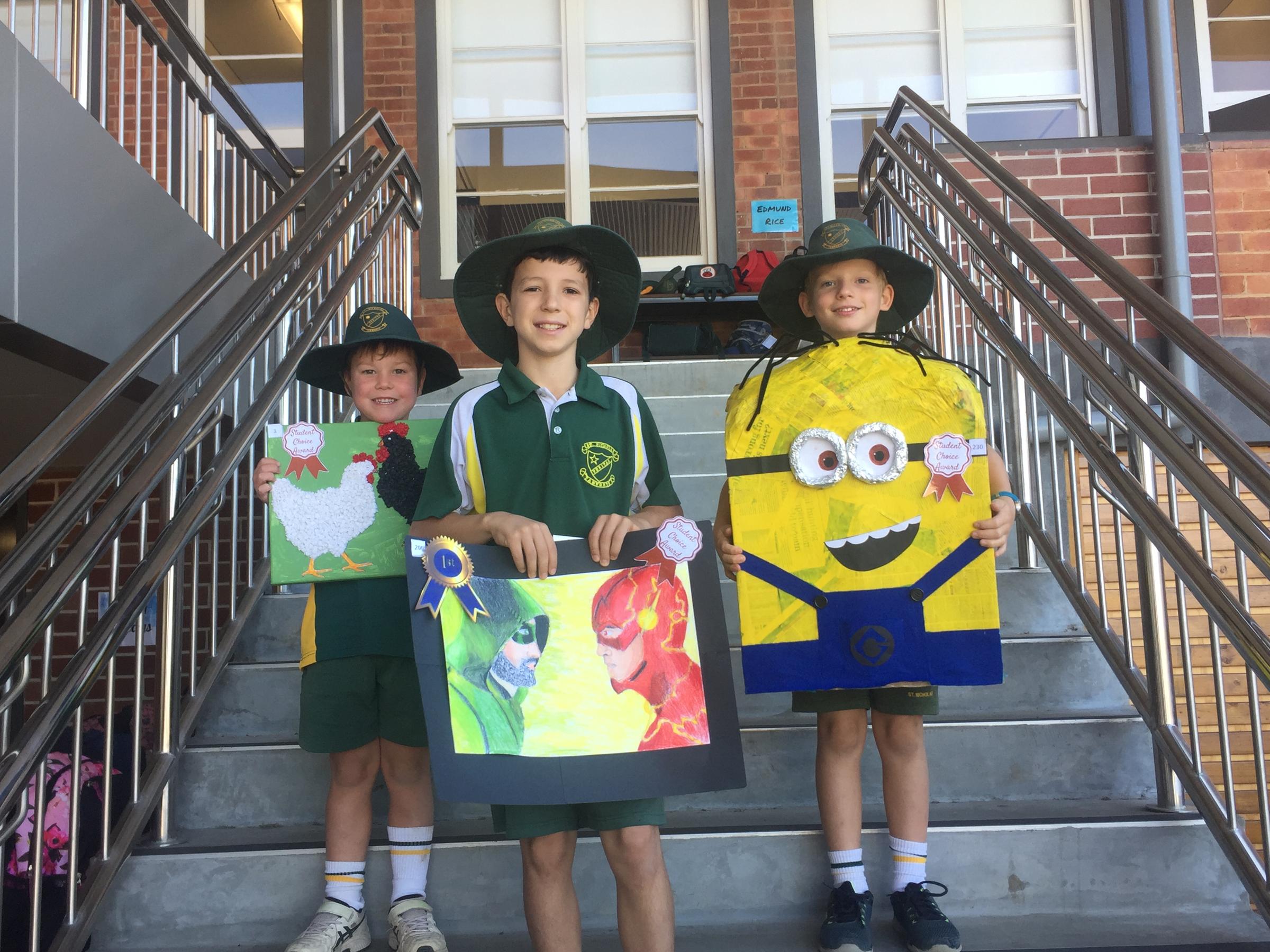
ANZAC DAY
Thursday, 25 April 2019
MARCH - PEEL STREET
St Nicholas School students wishing to join our School Captains and staff to march on Anzac Day are asked to meet in Bourke Street (just off Peel Street) at least 15 minutes prior to the commencement of the march at 9.30am. Students must be in full school winter uniform with shiny shoes, school hat and hair appropriately tied back - jackets and jumpers are not required. The students will march down Peel Street then turn in to Fitzroy Street to meet parents on No.1 Oval for collection. Students will be under the care and appropriately supervised by teachers at all times.
WREATH LAYING SERVICE
Mr Clery and our School Captains will be representing the school at the Anzac Day Mass being held at St Nicholas Church and the RSL Anzac Day Wreath Laying Service held at Tamworth Town Hall directly after the march.
ST NICHOLAS SCHOOL ART COMPETITION
Congratulations to everyone who participated in this year’s competition. The entries (and the standard of entries) continues to grow each year and we most certainly have very creative students within our school!
This year we were able to raise an outstanding $545 for Caritas which was presented to Mrs Dunst during morning assembly. I cannot express how proud I am of this amount and I would like to pass on an enormous thank you to all the students who entered and to all the parents who came to view our gallery! Your support will go along way in changing the lives of less fortunate people.
This year the competition was supported by local artist, Andrea Bruno and the Tamworth Regional Gallery. Andrea Bruno has kindly donated her time to offer an ‘Artist’s Workshop’ to this years winners, whilst the Tamworth Regional Gallery has donated a position in a holiday workshop to our overall Stage 3 winner. I would like to thank both Andrea and the Tamworth Regional Gallery for their generous support this year.
After numerous judging rounds, some very tough decisions were made and I congratulate our stage and category winners below. Vienna Sharpe, the 2018 overall Stage 3 winner was on hand to present certificates to this year’s winners. Thank you Vienna for taking time out of your high school studies to continue your passion of art and supporting young artists.
Student Choice Awards (as voted by the students)
Oscar Tonkin
Max Hickey
Archie Eather
Recycled Art
1st - Halley Buckman
2nd - Laqueta Hutton
3rd - Lachlan O’Mullane
Highly Commended - Lachlan Mulligan, Cody Wilson, Xander Kidd
Early Stage One
1st - Priya Hitchcock
2nd - Harry Judd
3rd - Cleo Cook
Highly Commended - Thomas Marsh, Paige Gwatkin, Suzannah Kunovic
Stage One
1st - Charli O’Keeffe
2nd - Infinity Hardman-Shoobridge
3rd - Mila Taylor
Highly Commended - Liam Gallagher, Kate Baiocchi, Macy Graham, Winsome Urquhart
Stage Two
1st - Ella Gallagher
2nd - Poppy Bensely
3rd - Magnus Urquhart
Highly Commended - Isabel Chatfield, Sam Sharpe, Chelsie Storch
Stage Three
1st - Archie Eather
2nd - Trang Tran
3rd - Alice Fahey
Highly Commended - Hugh Gallagher, Will Penberthy, Cody Wilson
A massive thank you again to everyone who assisted with this year’s competition. Keep using those creative skills and we’ll be back again next year!
Mrs Hofman
THE IMPORTANCE OF PLAY
With the school holidays upon us, encourage your children to play. Play is an important way for children to learn to navigate through their world and there is solid research to support the link between play and a love of learning.
The Importance Of Learning Through Play For Children
Experts agree that play is one of the most important ways that children learn and prepare for life, as well as being a crucial activity for igniting and stimulating a love of learning.
Play is vital for the development of the brain and helps to build children’s communication skills, to understand their place in the world and to explore their feelings. Furthermore, play also builds self-worth and resilience. In fact, play is such a crucial element of a child’s life that it’s been enshrined in the United Nations Convention on the Rights of the Child. Article 31 states that every child should have...the right to rest and leisure, to engage in play and recreational activities appropriate to the age of the child and to participate freely in cultural life and the arts.
Even though children generally don’t distinguish between learning and playing, there are different types of play, which offer a variety of learning opportunities. From physically active play like running and climbing, quiet play like reading or looking at books and co-operative play involving games with others to constructive play using fine motor skills like doing puzzles to dramatic and fantasy play like painting, dress-ups and making music - there’s no doubting the fact that children learn different things from different types of play.
Essentially, play is one of the most important ways that children learn about life and about themselves. It helps them develop vital skills which set them up for life, and parents, caregivers and educators can influence the way that children learn and interact with others by understanding both the mechanics of play as well as how children learn through play.
So how and what do children learn through play?
There are many, many skills that children learn through the different types of play - all of which are vitally important for sound cognitive, physical, social and emotional development.
Apart from the obvious things like developing the capacity to concentrate and problem-solve as well as the development of fine and gross motor skills, cognitive concepts, language and memory skills, hypothesising, critical reflection and collaboration, children also learn a huge amount of social and emotional skills through play.
For example, when children are playing games where rules are involved (regardless of whether the rules are pre-set or are organically developed as the game goes along), they learn how to play by the rules, they learn how to handle situations (and themselves) when they don’t agree with the rules and they learn how to take turns. The development of social skills is crucial - and through play, children can learn how to interact with others, co-operate, negotiate, share and manage their emotions, use their imaginations and make sense of the world.
Whether it’s drawing and sculpting, dancing or climbing, painting or acting out a make-believe situation, building castles in a sandpit or filling containers with water, playing alone or with others, play activities provide an essential platform for children to learn, discover, explore, questions and communicate.
RESPECT FOR PROPERTY
We are having a big focus on our students respecting our school property. We would love our parents to support this focus by discussing with your children the need to look after the wonderful facilities and learning tools that many students in our world do not get the opportunity to enjoy.
What we have should be treated with the utmost care.
NAPLAN Online 2019
The actual NAPLAN online tests will be conducted in the window of 14- 24th May 2019. The online tests will be Writing (for Year 5), Reading, Conventions of Language (spelling, grammar and punctuation) and Numeracy. Year 3 will not have an online writing test, it will be a paper test.
Further information about NAPLAN can be found at https://www.nap.edu.au/docs/default-source/default-document-library/naplan-online-information-brochure-for-parents-and-carers.pdf?sfvrsn=4
KINDERGARTEN 2020
Enrolments close tomorrow!
An indication of life moving fast is when we ask our current families to ensure that they have siblings enrolled for Kindergarten 2020. Enrolment applications are available from our front office and close at the end of Term 1, 2019 - Friday, 12 April 2019. All applications received after this date will be held on our waiting list. Any queries, please do not hesitate to contact our office staff.
FOR SALE
We are in the process of purchasing new furniture for our main meeting room. If anyone would like to buy our boardroom table and side cupboard, please contact our school administration.
FREE WORKSHOP
MOBILE PHONES AND STUDENTS
Here at St Nicholas School, students are not permitted to use mobile phones whilst in our care. However we do appreciate that some students have phones to make communication with parents easier especially after school hours. Our policy is that all students with phones, ipods or other electronic devices must hand these in at the office to Mrs Grady at the start of each day and collect them at the end of the day. If phones are used inappropriately by any student they will not be permitted to bring it to school.
SUPERVISION OF STUDENTS
All parents need to be aware our supervision of students does not begin until 8.15am each day. We are becoming increasingly concerned that children are being dropped off and left on their own, unsupervised by parents before this time - often up to half an hour earlier. This is not a safe or acceptable practice. We cannot be responsible for any accident or potentially harmful incidents occurring. Please organise alternative care for your child if your child requires supervision before 8.15am.
SCHOOL STUDENT TRANSPORT SCHEME (SSTS)
For information visit https://apps.transport.nsw.gov.au/ssts
